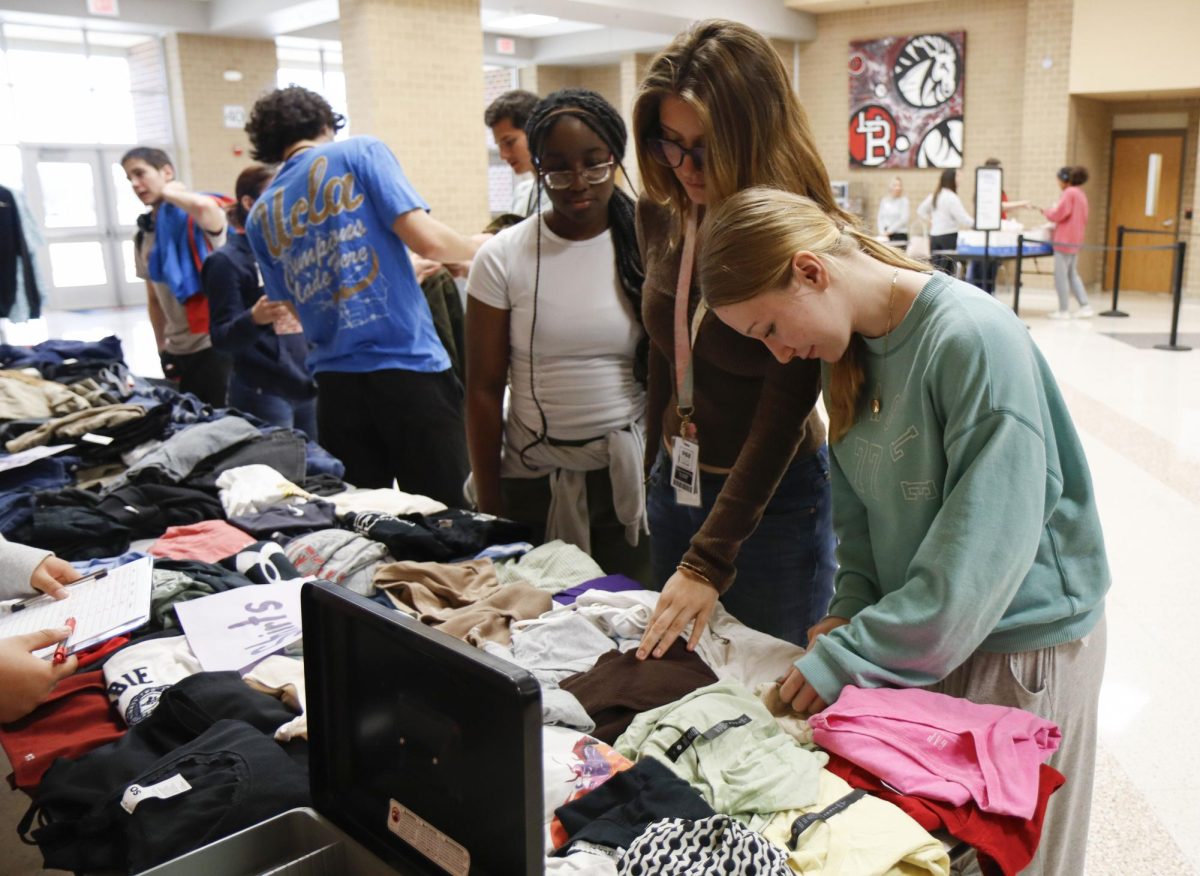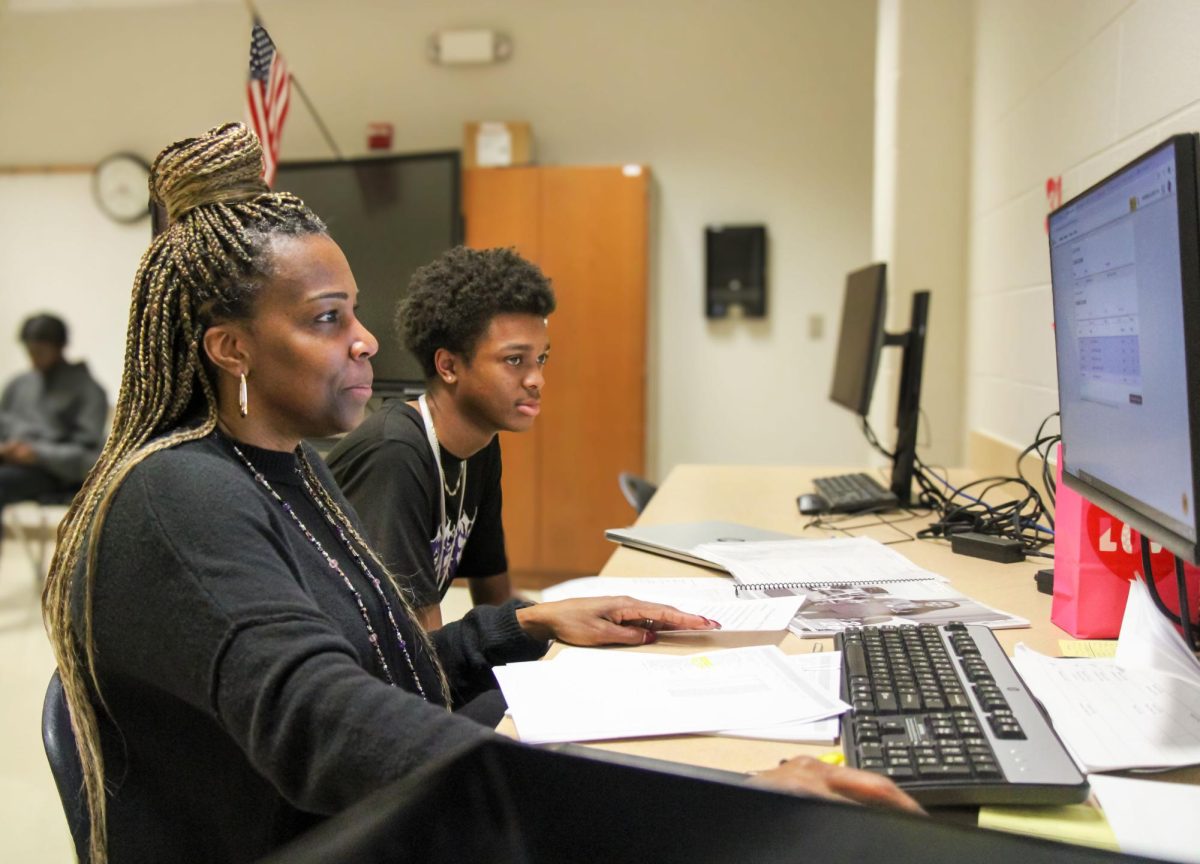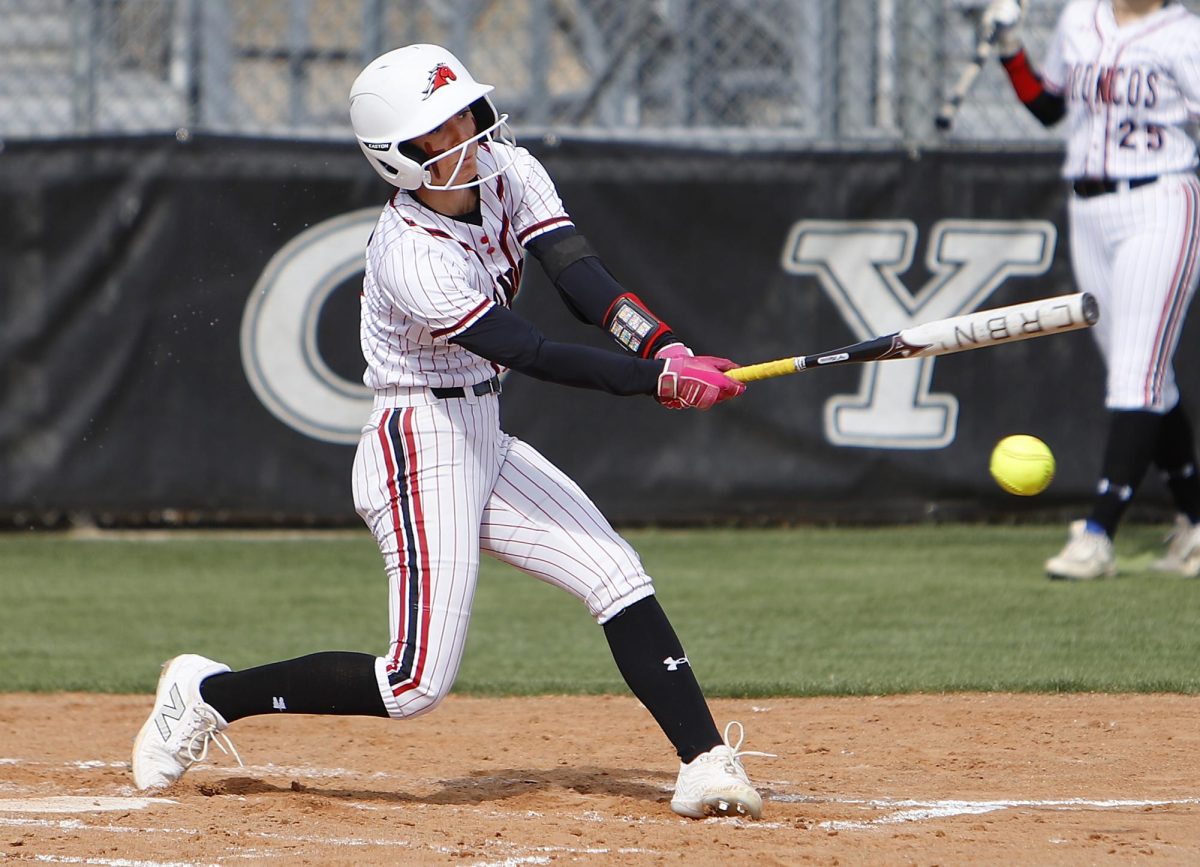Administrators adopted a new tardy system along with revised tardy policies. This system makes students scan their ID’s to print a tardy pass. On the pass, a warning or consequence along with how many tardies the student accumulated is included.
Many teachers and administrators like the system, while students view it as unfair and question its usefulness.
“Personally, I don’t love it,” junior Annelise Vinson said. “I feel like it’s really just documenting the student, when I know that it’s trying to keep people accountable and make sure that they’re here on time. In the end, it’s not helpful.”
Office aid senior Danny Wall stands outside the AP’s office and monitors students as they use the new system.
“I think in recent years the behavior has been worse because of the virtual year people are adjusting back to school,” Wall said. “The new system gives more discipline for people who skip or are tardy.”
After scanning a student’s ID, the system immediately notifies the student’s parent or guardian. These notifications are not only sent when the student gets a consequence, like detention, but also when they get a warning. Office Aid Avian Hines Bell, senior, watches the effects of the system.
“I don’t think it’s perfect but it is pretty effective and a lot better than before,” Hines Bell said.
The new policy states that students will get two warnings every six weeks. After that, students will receive consequences. Ms. Donna Kercher, biology teacher, praises the new system because it puts more accountability on the students. However, Ms. Kercher does not like the new policy put in place with the system.
“I think resetting it every six weeks is not a good idea. Students are going to start abusing that system,” Ms. Kercher said. “There are kids who go through the entire four years and are never tardy, so why do some students need two chances every six weeks?”
The change in policy is not the only problem Ms. Kercher sees in the system. Already seeing ways that students are avoiding receiving tardies.
“Some students are figuring out how to cheat the system by using other students’ ID’s,” Ms. Kercher said. “They will borrow a friend’s ID who doesn’t have any tardies because they have too many, so they use a friend’s ID who can afford a tardy to get away with tardies”
However, even with the problems the new system presents, Ms. Ashleigh Bible, assistant principal, finds it far more convenient than the old way of processing tardies.
“The old way took way longer, it had to print a whole piece of paper every time and use more paper and more ink and it wasn’t as good as this one. This one is student-led,” Ms. Bible said. “The kids can just scan their ID on their own. It doesn’t take an AP or secretary to do it.”
While students love the new efficiency of the system, Vinson believes the new policies this year gave stricter guidelines for teachers to follow.
“Teachers were more lenient last year. If it was like five minutes after the bell they would still let you in. It also causes a distraction and less education for the student because they are missing class to walk down to an office and get a tardy pass,” Vinson said.





















